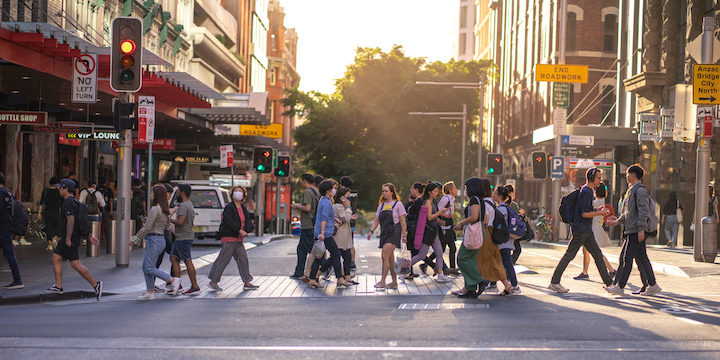Hit fast and hard to quickly regain a “normal life”. This is the so-called “Zero Covid” strategy adopted in Asia and Oceania. Its principle: to reduce the circulation of the coronavirus to zero in a region or a country, thanks to strict measures taken as soon as cases appear, combined with a drastic control of foci of infection (test, trace, isolate).
At the same time, normal life can continue in areas where the virus is not circulating. Thus, in Auckland, two million New Zealanders began a three-day confinement on February 15 because of three cases of covid-19.
Health, social and economic benefit
More and more specialists are pleading for this strategy to be applied in Europe. “The advantage is threefold for the countries which have adopted it“, New Zealand, Australia, China, Taiwan and Vietnam, assures epidemiologist Antoine Flahault, director of the Institute for Global Health at the University of Geneva, who co-signs on February 15 in The world a forum in favor of Zero Covid.
“On the health level, they are the undisputed world champions for the low number of deaths per capita, and on the social level, life has resumed its rights: bars, restaurants, cultural and sports activities, schools and universities are normally open, almost non-existent barrier gestures“, he explains to AFP.”On the economic front, Taiwan and China experienced positive GDP growth in 2020“, adds Professor Flahault.
“Living with” questions in Europe
For this specialist, “Zero Covid” is clearly preferable to “Mitigation strategy” of most Western countries“, which apply,”between two waves “, the “to live with” the virus.
A situation that is “not acceptable“, according to Martin McKee, professor of public health at the London School of Hygiene and Tropical Medicine (UK).it creates too many uncertainties in the long term“.”We are trying in vain to control the epidemic, there are constantly resurgences and therefore additional confinements, and no one can plan anything“, he told AFP.
Another problem with this “to live with“:”the more the virus circulates, the more we are exposed to the appearance of mutations“and therefore of variants, recalls Professor McKee, convinced that” Zero Covid “is”the only alternative“.
Too many differences between Oceania and Europe?
But is the application of this strategy realistic in Europe? “It would be more difficult“Says Prof Archie Clements, epidemiologist at Curtin University in Perth, Australia. For several reasons:”the much greater mobility in Europe, the much higher population density of cities, the dependence of the European economy on cross-border travel and the fact that Europe is a major travel destination“, he lists AFP.
Another major difference is the isolation and lack of land borders that characterize Australia and New Zealand.
So many arguments which do not convince Europeans supporters of “Zero Covid”. “When the UK has higher mortality than Germany, Switzerland or France, it is not said that insularity is the reason for its poor performance“, notes Professor Flahault.”Taiwan or Vietnam have a high population density“, notes Professor McKee.
Don’t repeat “past mistakes”
Whether or not the “Zero Covid” strategy is importable, it is anyway “too late for that in Europe“, where the virus and its variants circulate very strongly, judges Professor Clements.
“Europe missed the opportunity to adopt a Zero Covid-type strategy at the end of the first containment“and a”preferred to enjoy summer” in “letting the virus circulate“, argues Professor Flahault.
Next objective for this specialist: “that our democracies open a real debate“to avoid”repeat past mistakes“. Because “several European countries will achieve a notable epidemic decline in a few weeks and will have to ask themselves the question. “
 Cherry tomatoes contaminated with salmonella: 92 sick and 1 dead
Cherry tomatoes contaminated with salmonella: 92 sick and 1 dead  A better coaching method can make a person grow
A better coaching method can make a person grow  What is the method to prevent diabetes in children?
What is the method to prevent diabetes in children?  What are the effective factors in causing stomach ulcers?
What are the effective factors in causing stomach ulcers?  Why do embarrassing memories seem to appear at night?
Why do embarrassing memories seem to appear at night?  The amazing link between SARS-CoV-2 infection and newly started diabetes
The amazing link between SARS-CoV-2 infection and newly started diabetes  WHO says monkey pox is not a global emergency right now
WHO says monkey pox is not a global emergency right now  Single cell RNA sequencing uncovers new mechanisms of heart disease
Single cell RNA sequencing uncovers new mechanisms of heart disease  Hepatitis of unknown origin: 3 new deaths and 228 cases worldwide
Hepatitis of unknown origin: 3 new deaths and 228 cases worldwide 